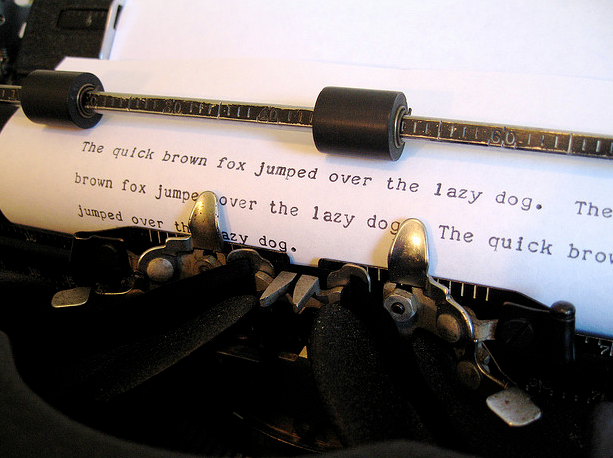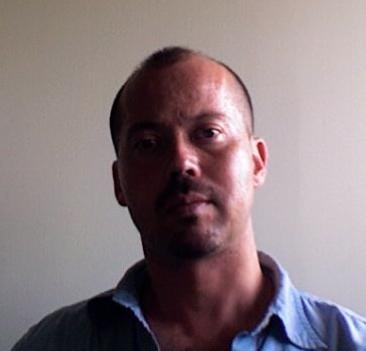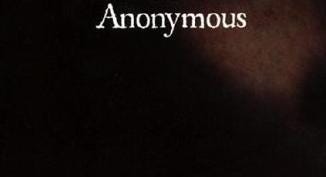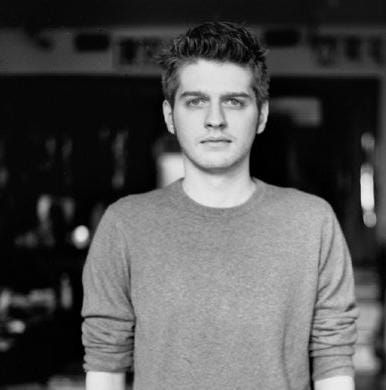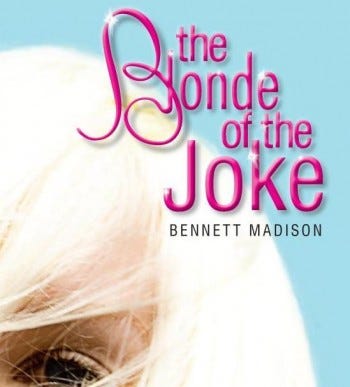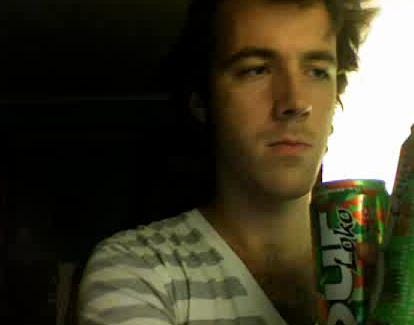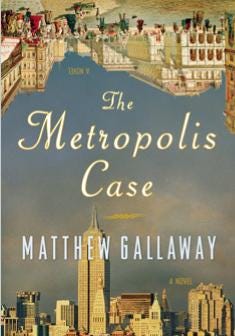Five Writers Explain How They Got, Kept and Fired Agents
Let’s say that after a certain amount of time, probably more than a year (and possibly more than a few), you’ve finished your novel and want to find a publisher; or perhaps at the other extreme, five hours ago you started a high-traffic Tumblr, which people are telling you needs to be made into a printed book. Either way, chances are you’re going to need an agent. Agents are the gatekeepers of publishing, which may seem kind of pointless and inefficient until you understand that these days, agents not only negotiate contracts but often also do the lion’s share of the editorial heavy lifting (leaving actual “editors” more time to manage the marketing and production side of things, which to be fair is a lot of work). A good agent will help a writer to sculpt and shape and refine a manuscript or a proposal, before turning to his or her list of contacts in publishing houses (i.e., the editors who actually shell out the cash to buy). With a thought to offer some insight into what is almost always a murky and stressful process, I asked a handful of writers to explain the experience.
I asked them these questions:
1) How did you find your agent? Have you had more than one? Was there a query letter involved (and if so, would you feel comfortable publishing some or all of it)? How much of the book was actually written when your agent started working with you?
2) How critical was your agent as an “editor” of your book, i.e., helping you to shape it? Somewhat related question: do you show your work-in-progress to your agent? Do you show it to friends/partners etc? Any advice in that regard? Is the agent different than the editor in this respect, and if so, how?
3) What do you think are the most important qualities in an agent?
4) Anything else you’d like to add to writers looking for representation?
And now, on with the case studies.
Alexander Chee: Finding the Right Fit.
My agent, Jin Auh at Andrew Wylie, found me many years ago at a reading at the Asian American Writers’ Workshop, an open mike — this was when it was on St. Mark’s Place. I’d just read a story I think of as, well, nuts, but she liked it, which is what matters. She just walked up to me, complimented me on it — I recall even apologizing to her for it — and then gave me her card. This is one of those signs that it might work out — if your agent likes the stuff you apologize for, you’re all right. She’d just started out then and I was already signed up with my first agent. I didn’t need representation and instead just kept her card. This is to say, she wasn’t my agent just yet. The agent I had when I met her was referred to me through a friend who offered to set us up.
That agent, let’s call her Agent 1, signed me in a running jump: I’d attracted the attention of an editor at Morrow for a manuscript he saw based on the interest of an editor at the New Yorker, who’d passed on a story of mine but liked it, and knowing it was part of a longer book, sent it to this editor. Morrow eventually passed on that book, fearing it would become 600 pages by the end, though when I look at the proposal I wrote for that book, I experience a total lack of recognition, followed by horror. I don’t really blame them, in other words. I didn’t have to use a letter in either case. This might be a kind of luck. My advice on letters, though, is be succinct, respectful, and do not say crazy things in a query like “I look forward to working with you,” though if you make that sort of mistake you’re not going to listen to my advice.
Agent 1, I left her after she wanted me to withdraw my first novel, Edinburgh, from submission, after it had failed to sell. It had been rejected 24 times over two years, and she had really tried. We’d had high hopes — it won a prize, the Michener, awarded by the director of the Iowa Writers Workshop, Frank Conroy at the time, and I remember Agent 1 calling me to say Frank had called her to say he was giving me the prize that year, and could he help her sell it in any way? Now she was saying she would not go any further with it, and asked me to consider withdrawing it, which, if that happens to you, is your agent’s way of saying, “We might be about to break up if things don’t change.” She asked me to write my second book, the one I’m finishing edits on now, which the publishers rejecting the book were more interested in, as they kept saying “That’s his big book.”
This was killing me, that a proposal for a book I hadn’t written was ruining the chances of the book I’d written. We were learning a lesson, and the lesson was, “Publishing has changed, we don’t build writers slowly anymore, we don’t want to take risks with material. We try to launch them with blockbuster money and create an instabrand with big books. If it fails oh well goodbye.” This was the years 1999 and 2000. I had a conversation with an editor who reluctantly turned the first book down, very much wanting it, saying, “You did everything right, publishing in journals and making a name for yourself, writing a difficult first book, but we don’t do things that way anymore. You need to start with a big book.”
Agent 1 gave me good advice, even if it was hard to hear: “The first novel you finish isn’t always the first novel you publish.” She said she wanted to withdraw it because she didn’t want to go the small press route with my launch. “I don’t think that’s right for you,” she said. She felt sure that if I wrote the second book first, it would make the first book possible. I understood, but the idea of setting this book aside and writing an entire other book after all that was agonizing. Also, I’d already given up on a book before this.
I felt as if I’d been standing in a loud dark room for years, which, if you wait tables in New York, is basically true, and I wanted out. The whole thing reminded me of a story my mom had told me about going with a friend to her airline attendant audition back in the early 60s, and they wanted her instead of her friend. I just remember thinking, “If they want the pretty sister, they have to take the weird queer one who’s a bit of a pyro.”
I tried it her way. I withdrew the manuscript and then spent about five months unable to write the second book. My unconscious mind was not playing ball with this plan. So I took a long train ride to work with my novel, and on the way back, read it, determined to put it aside if I really thought it was no good. I hadn’t looked at it in a while. It was better than I remembered.
With a heavy heart, I took my leave of Agent 1. It was a sad day for us both — she’d made no money on me, really, and I felt badly, as she’d put a lot of time and reading into me, cheering me on, leaving me messages on my machine at the New Year saying “Maybe this is the year you finish!” and introducing me to people at parties when I ran into her. I found an editor at a small press on my own a few months later, at a panel we were on together at the Asian American Writers’ Workshop (communities matter, is a lesson to the side here) and when, to my shock, he said he wanted to publish it, he referred me to someone we’ll call Agent 2, who drew up the contracts.
Things finally went well for my first book, scouts were excited, reviews went well, the paperback rights went to an auction that had publishers who’d rejected it in hardcover asking to see it again (11 of the 18 asking to see it had rejected it).
And then my small press went bankrupt, owing me a great deal of money from the Picador sale and it seemed I’d never get it. Agent 2 said, essentially, I can do nothing for you there. I fired her, because I needed someone who could do something for me.
This was not precipitous: If your publisher goes bankrupt, you are in line after their printers, etc. You are small fish, even if it’s a lot of money for you, and in this case, this was money I’d hoped to use for writing, say, away from restaurant work. The paperback deal had other agents interested in me. I saw how perhaps it had been a mistake to just go with whoever was interested next (the agent thing is a lot like the love thing) and this time, made a list of four agents I knew that I thought might be good and selected a first choice, Jin, and gave her a head start (someone had advised me to set it up this way and I don’t remember who — thank you, whoever you are). I gave all of them two proposals and sample pages, and a letter describing what was happening with the first book. Some agents don’t like it if you’re in touch with several at the same time, I’ve heard, but I think that’s naive, and really, do you want an agent who is afraid to compete? Jin was my first choice because I’d recently run into her during the summer of my crisis, at an event for another client of hers, and she knew about my paperback sale, had seen the reviews for my book, and complimented me on it all, which showed me that about seven years later she was still paying attention to a writer she’d seen at an open mike in the East Village. That meant a lot to me.
When I met with my prospective agents, I paid attention to several things: their level of interest in my future projects and their ideas about how to handle these projects as well as my problem with my first publisher. All were great, but with Jin, I felt she just intuitively got how I worked and displayed a lot of information about approaches to both my future projects and my current crisis in a way that gave me confidence in her. And when I met with her just prior to leaving for my paperback tour, she asked me to send her a list of the places I was staying and to make sure she had the phone and fax numbers of the hotels. This was before she’d even signed me. She is still this thorough. She handled the bankruptcy stuff for me, and even got me some of what was owed me, which, in bankruptcies, is a miracle. I was able to quit that restaurant job, and about a year and a half later she sold my next book as a partial in a 9-day auction. She also put me through what she called “proposal boot camp” — no more horror story proposals like that first one. She’s a brilliant agent. Anyway, moral of the story: go to your open mikes.
Agents are very critical to editing, i.e., essential. And it isn’t just the notes, keep in mind: the enthusiasm matters too. Every exclamation point in response can keep you going for years. I’m completely serious about that. Jin will send me notes and meet with me to talk about my unfinished manuscripts, in the way writers once expected from editors but don’t always get. This has been very helpful. I really respect her opinions. My current editor is amazing, though, and is not the hands-off kind we’ve come to know, the editor too buried in emails and meetings to really edit — she sent me a scrupulous, thorough editor’s letter for the new book, and we’ve had great conversations about it. I feel very lucky with both my agent and editor.
My partner Dustin is a helpful primary reader. He’s got a very sophisticated sense of narrative, and he regularly notices things I don’t. I do show work to friends, typically some who are also writers, some who are not, who just love books. I think it’s important to choose a mix of people as readers.
Agents have to think you’re a genius. I know way too many people with semi-indifferent agents, and they don’t like the way they’re getting handled. If the agent has never really loved, genuinely loved something you’ve written, you should probably get out. Other than this, a lot of it depends on what you want from an agent. But publishing is a game of telephone: whatever your agent feels and says about your work is most of what comes back to you in terms of your career, and so it has to start out strong.
Finally: Watch your own expectations. Be a professional about how you handle yourself. Don’t expect them to wave a magic wand and then everything is better.
Name Withheld: When Agents Do You Wrong
A magazine ran a series of my investigative pieces, which attracted the attention of a major publishing house. I had no ambitions of writing a book but the articles were getting a lot of great feedback and the idea of not having to freelance for a year had obvious appeal. I had two conversations with an editor, who floated an advance figure that sounded reasonable and I figured, why even bother with an agent? Then there was talk about overseas printing and other details that were intimidating. So I bit the bullet and called a contact over at a large agency, which let’s just say was the most expensive phone call I ever made.
The person who supposedly “edited” my book at the publishing house was an intern who graded my manuscript like it was a freshman’s mid-term. I’m pretty sure that the actual editor didn’t read the book until second pass, which was absolutely depressing and demoralizing. I really wanted help to refine my viewpoint and I thought my editor would offer some insight, something like: “here’s where your argument is flawed” or “here is something that’s missing.” Well, there was none of that. Which is all background in terms of my agent, the point being that my agent did absolutely nothing, nada, zero, zilch.
Not once did my agent ever ask to see my work, and what became clear very early in the process was that both my agent and my publisher lacked both editorial and marketing savvy. In short, my agent wasn’t critical, he was a joke. He was barely on my side. He had a dozen other projects with the publishing house so he wasn’t about to bust balls on my behalf. It was all about keeping the relationship between the publisher and the agent smooth. There were all sorts of absurd last minute demands, irrational ones, that my publisher made and my agent didn’t really question at all, so it was up to me to take a hard line and push back.
Okay, I guess my agent played the “good cop” a few times by attempting to diffuse the tension but ultimately he sold me out on a couple of major points. Like most books, mine is nothing more than a trading card in a perpetual game that will go on long after my book had been remaindered. The thing I learned is that many agents ultimately work for the publishing houses; they shouldn’t, but by the end of the whole process, it was clear that my particular agent was just an extension of my publisher.
It would have been nice to have an advocate, or someone I felt cared about the work, neither of which happened for me. In terms of selling a book? I still don’t know how you do that. I’ve had conversations before with other non-fiction authors, and okay, a few felt very protected by their agents, shielded from all the dysfunction of the publishing houses. I tend to think agents are becoming obsolete in publishing. If I were doing it again, I’d want someone who’s a serious ball buster, someone who still gets their calls returned. Anything less than that? Sorry, but it’s a shakedown.
Bennett Madison: An Agent Should Really Love Money
I found my first agent after I already had an offer for my first book. That was something that a friend had helped me set up, and then, after I had the offer in hand, another friend hooked me up with an agent. She was someone young, just starting to take on her first clients, and was pretty excited to have someone who had already sold something. I was with her for a couple of years and a couple more books, but unfortunately it wasn’t a personality fit. Keep in mind that I was very young and irresponsible (at the time!) so it’s possible no one would have been a good fit for me.
My current agent was also an introduction from a friend; she’d been very successful on the publishing side but had taken a break from it for awhile and was making her return as an agent, so she was looking for a whole new stable of clients. I’ve been with her ever since and she’s the best. I’ve never written a query letter and for that I’m very happy because they seem impossible.
I’m in the unusual position that I’ve sold all of my books on proposal — in other words, before they’ve been written. Although my agents have helped me (indispensably!) with the proposal part of the process, I’ve never really worked with them in an editorial capacity beyond that, because by the time the book is being written I’m already working with an editor. My agents have sometimes read it while it’s in process, mostly for moral support, but I’ve never been through a revision with an agent. I know a lot of agents work this way but I also have known people who have been through really heavy edits suggested by their agent only to have the editor to reverse most of those edit — and then ask for a new big revision — once the book is sold, which seems like a big pain in the ass.
I know this is a cop-out, but it’s hard to say what the important qualities in an agent are because it’s different for everyone. Some people, for instance, probably want an agent who is a really good editor, but that’s not something that has made a difference to me up to this point. I guess an agent should really love money. But really it’s just a personality thing. Personally, I need an agent who can make me feel secure and protected through all of my various freakouts — in other words someone I trust, which, duh.
So because I’ve never found an agent the traditional way, I don’t have much advice to give except that milking personal connections never hurts.
Miles Klee: Making Use of Dumb Luck
This is the answer nobody wants to hear: it was dumb luck. Luck so dumb that I get a creeping rash of guilt just thinking about it. One of my friends had worked in the music division of William Morris; when he found out I had a nearly-complete fiction manuscript, he suggested I send the finished draft to a WM buddy of his on the literary side. It was supposed to be a simple favor, just a way to get the thing read by a professional/unsympathetic eye and generate some useful criticisms. What I ended up sending was my particular psychosis splattered over 700 pages, a text that placed no special emphasis on “making sense” or “readability.” I honestly regretted that I was making another innocent person slog through such a thing. My girlfriend had painstakingly marked-up this draft even while protesting that it was far too sad; I had also inflicted copies on several close writer friends, all of whom probably hurled it across the room in short order.
The query letter is lost to the sands of Gmail. I’m certain I’d be pretty embarrassed by its attempts at self-deprecating/aggrandizing cleverness if my agent dug it up. I seem to recall tersely relating the names of authors I had studied with as an undergrad, my very short list of writing credits, and a bragging aside about Amy Hempel having found “four stories’ worth of comic and energetic grotesquerie” in a George Saunders imitation I’d penned in college. (My rule for writing to magazines and editors now is to keep it simple, relevant and polite, and try to let the work speak for itself.)
Despite this, I got a shockingly enthusiastic response. It included an incisive commentary and suggested changes for a next draft — a draft that, incredibly, this dude was willing to read whenever it came along. A few meetings over beers, three revisions and nine months later, I had a novel that clocked in at a sleek 290 pages but retained the language, weirdness and tone that imbued the original draft with whatever shadow of promise my agent saw in it. And we had come to a point where we could begin to shop it around. I doubt I could’ve honed the book as mercilessly as I did without my agent’s input. He’s a great reader, first and foremost: a writer’s reader. He’s not an editor in the going-through-pages-with-a-fat-red-marker sense, but he can pinpoint what I need to dial back or blow out, and he is able to see and shape the big picture, which is useful to someone who freaks out about paragraph breaks. He is unflappable in the face of my creative neuroticisms and paranoia; that stability is nice. Best of all, he understands what I’m going for, fiction-wise, and speaks to that — our literary aspirations and philosophies overlap.
The revision process as a result felt remarkably collaborative, and I think this is essential, that you and your agent are able to tap harmonic frequencies when it comes to the work. My experience may sound like disheartening proof of the “know the right people” principle. But where the venture actually began was in the obscure lit journals where I published short stories for little or no pay; it was in letting people know I aimed to write something more ambitious and seeking out feedback from anyone who offered it. When I sent off my unwieldy mess of a manuscript it was with one modest hope: that, given a tough critique, I might carve out the better book within. Improvement can be its own reward, and whether or not a publisher buys this thing, I can take satisfaction in seeing how far it’s come.
Matthew Gallaway: The Blind Submission
I finished my first novel in late 2000 and with pretty much no connections spent the next year or so trying to get an agent the old-fashioned way, by sending blind queries, mostly by snail mail. Although I continually made tweaks to the query, this is more or less what it looked like (with annotations by yours truly):
Dear [Name of Agent]:
Hello, I happened to read your recent interview in _____ and was happy to note your appreciation of [writer], [writer], and — most awesomely — [writer], which led me to think that I should query you about representing a novel I recently finished.
[Note: I think it’s a good idea to tell the agent why you’re writing to him/her, either through a “gimmick” such as the above or by referencing other writers they represent, which you can usually figure out in about five minutes of internet searching or by thumbing through the acknowledgments of books. You may or may not actually know or love every writer you list, but it’s not like the agent is going to write back and ask exactly what in particular you admire about a writer. The query letter is a game, not a baring of your soul, and this first sentence is a way to show the agent that you’ve done some homework.]
The novel, which is called THE TREE DIARIES, is about three friends (an art conservator, a musician, and an office worker) living in Washington Heights (i.e., upper Manhattan) who become involved in an outsider art forgery. It’s written alternately from the perspective of Vivienne, a young woman (the office worker) and Ben (the musician). As Ben comes to terms with the fabrications in his own past related to his music career and sexual orientation, Vivienne’s fantasies about living in a tech-boom, hipster-mecca like New York City unravel as she becomes increasingly enmeshed in the sometimes ephemeral details of the art forgery (on one hand) and the more mundane aspects of her life in Washington Heights (on the other).
[Note: This paragraph should read like a book report. Don’t try to convince the agent that your novel is omg sooo great, just give him/her a succinct idea of what it’s about. Which isn’t to say you can’t sound like a real person; in retrospect, I think the above letter was probably a bit too dry, but I would say it’s better to err on the side of caution than to offer any whiff of “zany,” because you have to figure most agents are getting hit with a LOT of crazy, so their tolerance is going to be pretty low on that front.]
As for me, I went to Cornell University and NYU School of Law, and now work as a development editor for a legal publisher. Though I have not published any fiction outside of a serial in a now-defunct, Brooklyn-based literary zine called “Volume,” I write a column called “The Law” for eCompany Now (AOL/TimeWarner) [Ed Note: LOL!] about legal issues on the internet. I also play in an indie-rock band called Saturnine that has put out several records and toured most of the country.
[This paragraph is where you throw in whatever B.S. you can think of that might lead the agent to believe you’re maybe “creative” and/or capable of writing a coherent sentence, but more importantly, that you’ve publishedand that you have a platform. Publishing, since 2000, has grown ever-more platform obsessed. Do you have 5000 Facebook friends? They care. Remember to turn down the crazy.]
Please let me know if you have any interest in reading the manuscript, and I will be happy to send it along. Thanks for your consideration.
Sincerely,
Matt Gallaway
[Keep this last bit short and to the point. Don’t include any photographs or attachments; in the old days, I would have advised to send it on plain, white paper along with the annoying but necessary SASE, but these days you’re probably going to be using e-mail, yay technology.]
Although the above-referenced novel did not ultimately find an agent or publisher (which, btw: THANK GOD), it did get read (and rejected) by more than a few presumably very good or at least high-profile agents, which I mention because it’s important to remember that even an average query letter can get you through the door to, at least, a reader’s report. This is one of the great things about publishing. On a somewhat related note w/r/t this first novel, I also made the rookie mistake of showing it to pretty anyone who was interested, i.e., friends, family (including my parents, most embarrassingly). In retrospect, this was NOT a good idea, because when their reactions were not quite what I expected because they didn’t “get” the work in some important (at least to me) way, it led me to doubt what I was doing. Of course there are different reasons to write, but if you’re interested in getting something published in the commercial marketplace, the only opinion that matters is that of the person who can either sell it (the agent) or buy it (the editor). My advice these days is not to share your work-in-progress with more than two or maybe three people whose opinions you trust and respect, and ideally have some experience in the very delicate art of offering artistic criticism. (In my case, it’s pretty much down to one.) Having learned some of these lessons the hard way, I nevertheless kept writing and finished a second novel in September of 2007 (btw, I was 39 years old). In November, I had drinks with an acquaintance who kindly offered to show the manuscript to a friend of his who was a fiction buyer at a big publishing house. (Obviously you should pursue any connection that falls into your lap.) The guy in question thought I was a “good writer” but had difficulty connecting with the characters emotionally, and felt that their development was limited by the book’s focus on “bigger ideas.” (Which in retrospect, I completely understand!) While he was not comfortable showing it to anyone with his name attached, he was nice enough to provide a list of agents he associated with “big-concept” fiction. Soon after, I sent out the following query by e-mail:
Dear Bill: Hello, I recently finished a novel and am looking for representation. I am writing to you because a friend of mine recommended you as one of a handful of agents who handles “big-concept” fiction, which is definitely where my work falls on the literary spectrum. The novel — called THE METROPOLIS CASE — is something I like to think David Foster Wallace might have written if he were an opera queen grounded in late 19th-century aestheticism and the post-punk/hardcore ethos of the late 20th. Briefly, it is about a French singer (Leo Metropolis) seemingly rendered immortal when he ingests an elixir vitae in 1870 at the outset of the Paris Commune; in addition to describing Leo’s rise to fame and subsequent disillusionment as a Wagnerian tenor, the plot follows his twin children, born in 1960 to a dramatic soprano in New York City but given up for adoption. The son (Martin) grows up to be a successful music attorney but becomes increasingly disenchanted with the business after 9/11, while the daughter (Maria) struggles to launch her own singing career after attending Juilliard. The novel is designed to be something of a “magnum opus” to the extent that it employs a range of motifs more or less related to what could be described as the dissonance of modern life, particularly as seen through the principal characters’ relation to music — from Richard Wagner to the Velvet Underground to My Bloody Valentine — philosophy (loosely: Hegel versus Schopenhauer), love, cities, memory and resignation. As for me, [same stuff as above regarding education and work] and I now write a philosophy/criticism/fiction blog called “The Gay Recluse,” loosely inspired by Walter Benjamin and JK Huysmans. The popularity of the blog to this point has (pleasantly) surprised me, and makes me think that there is an underserved market for what I would describe as serious literary fiction written in a “gay voice”; in any event I expect that the blog would be a good platform from which to cross-promote a larger work of fiction. Finally, I have also worked as a music critic, and spent a few hazy years playing in an indie-rock band called Saturnine.
Please note that DFW (who was a genuine hero to me) was still alive when I wrote this query. (R.I.P.) And more to the point: so yeah, there’s a lot of B.S. in here — not only of the name-dropping variety, but especially in terms of the blog and my ridiculous use of expressions such as “cross-promote” and “platform,” which, OMG BARF — but it’s become increasingly important for writers to know their way around the Internet, and because the publishing world is waking up to this fact, as a prospective client, you probably want to express this idea, albeit in a less heavy-handed way.
This query was followed by two minor miracles: 1) within a few hours of sending, Bill’s assistant wrote back asking me to submit the manuscript, which I promptly sent as a zip file (at that point it was over 300,000 words); 2) two weeks later, I heard from the assistant again, asking to submit the manuscript, meaning that he did not receive it the first time. (TIP: Be sure to ‘cc’ yourself on any correspondence you send to an agency.)
Needless to say, I’m eternally grateful to this assistant for following up with me twice. In January of 2008, I received a short note from Bill, who said that he was working his way through the manuscript and was basically enjoying it and impressed by my writing skills. (By this point, I had stopped querying other agents, which I mention because there’s often a debate about how long agents should take to respond after they have your manuscript; I think a good rule of thumb is four to six weeks, after which you should assume the answer is “no” and renew the search; also, don’t send more than one e-mail reminding the agent that you’re waiting for a decision. If they don’t respond, they’re clearly not in love with you, which is a clear sign that this is not going to be a good match.)
In early February, I received a second note from Bill, saying that he admired the work but was unwilling to represent it in its current form; on the plus side, he did offer to look at it again if I’d be willing to cut the manuscript from its present length (almost 1000 double-spaced pages) to something in the 500–600 range. This can be called the “Diva Test,” i.e., he wanted to find out if I was someone who could stomach or even embrace serious revisions as well as follow direction, which (as I subsequently learned) are a big part of the process.
In March, I sent him a new version, and settled in to wait. In April, he wrote back to say that he enjoyed the rewrite. He offered some additional comments, all very specific and intelligent, about how to streamline the story, and he asked for another revision. This version I submitted in early June, which was followed two or three weeks later by another note suggesting that we meet and go through the manuscript page-by-page, which happened in early July. (None of this really conveys the agony I felt waiting for his response, i.e., constantly refreshing my inbox, going on long runs, torturing the cats, and so forth, which I think is only human and I mention only because it’s an inevitable part of the process.) This meeting, which lasted perhaps 90 minutes, is one I’ll always refer to as my “Boot Camp MFA” because it was all about how to make the novel work better as a novel or story, i.e., Bill pointed to places in the manuscript where he “lost touch” with the characters, and identified specific passages that he liked (or didn’t like) stylistically, because as he pointed out, I needed to cut back on the “coloratura.”
Not once did he say anything about changing anything because he thought it would or wouldn’t “sell” — in fact, he dismissed the whole idea as beyond anyone’s control — but focused entirely on the integrity of the novel as a work of art. (Which I found incredibly uplifting and positive, and is something I’ll always be grateful for, no matter what happens with the book going forward.) And let’s be honest: besides the gay stuff, there are many elements in this novel — e.g., kittens, magic formulas, singing, completely implausible plot twists, etc. etc. — that while “operatic” in intent do not exactly scream “commercial success.” In short, it was an intense but invaluable meeting that left me both exhilarated and wanting to throw up at the idea of doing yet another revision, which of course I did anyway, because I knew Bill was right about making the novel a better, more compelling piece of fiction. This revision I turned in to him in early September, and a few weeks later he called me to announce that he “had a plan.”
By the end of the month it was sold, a process — i.e., the actual sale — I’ll cover in another installment, because that’s a whole different league of crazy once you throw editors into the mix. A final note to those embarking on the search for a literary agent: throughout this not-exactly-short process, there was never a formal (or even informal) agreement that the agent was “taking me on.” You have to trust that he or she is acting in your best interest, while keeping in mind the more obvious fact that they eventually intend to make money from the novel, it’s not like they’re reading as a favor, that’s not how it works, despite what I said a few seconds ago; the point being that good, inspired writing (however you want to define it) can still be sold by the right agent, and sometimes it all falls into place. So if you’ve finished your novel and are looking for an agent, don’t give up: even if you don’t know anyone, there’s always hope that you’ll get a break and find your match. And if it doesn’t happen this time, there’s always the next one.
Matthew Gallaway lives in Washington Heights and is the author of the forthcoming novel The Metropolis Case
. Publishing School looks at “real-world” issues related to writing and publishing a book. Questions, comments, and ideas for future topics can be addressed to Matthew Gallaway at mattgallaway [AT] gmail [DOT] com.
Top photo from Flickr by Seth Morabito.
